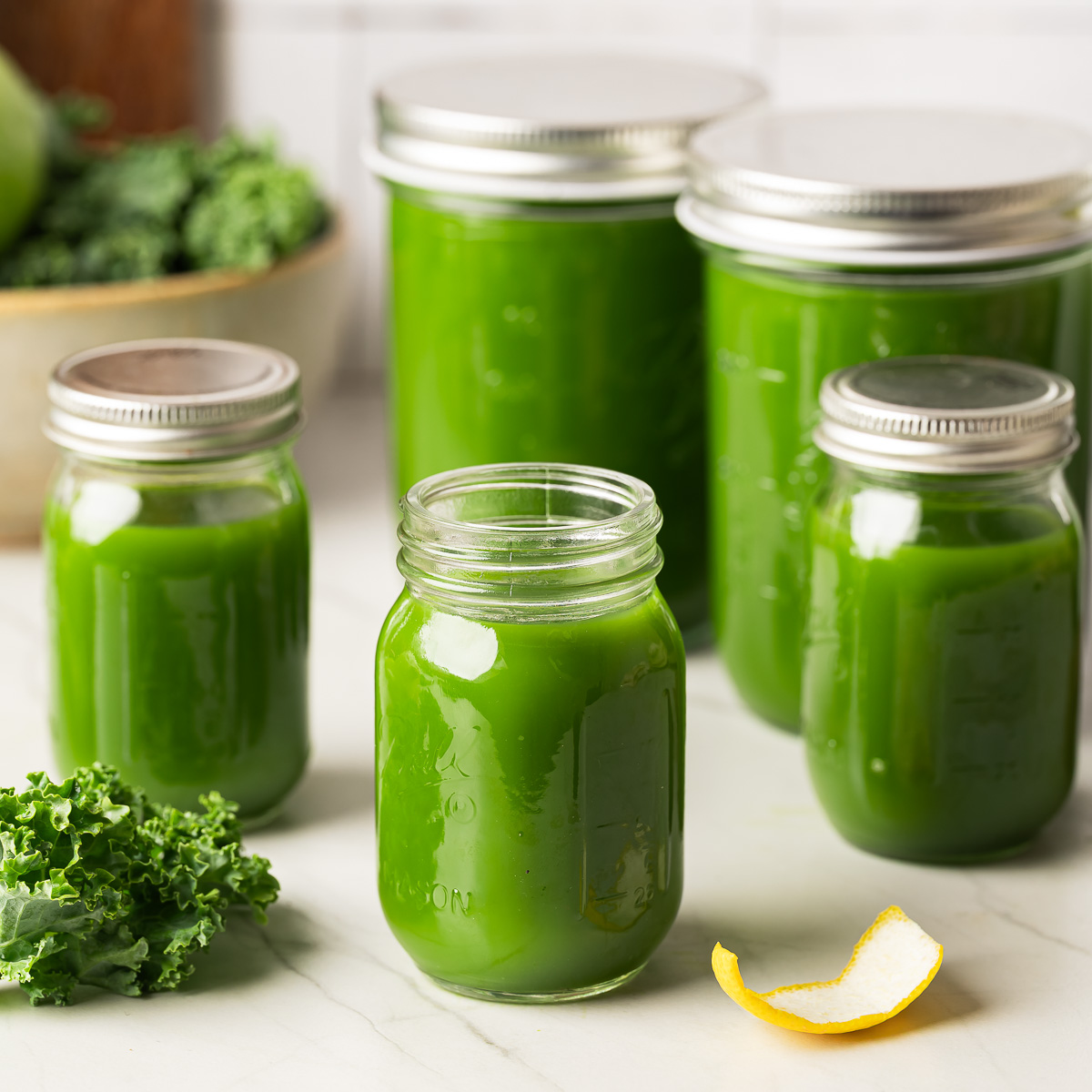
This post may contain affiliate links, meaning I can earn a small commission from items you purchase (at no cost to you).
Table of contents
I’ve tried to get on team juicing for years—and have bought plenty of green juice at the store. They’re pricy, and either loaded with sugar or taste like lawn clippings. I decided if I was serious about nutrients, juicing has got to happen. And it has to happen on my terms. Enter: this blender green juice recipe.
The ingredients are super fresh, affordable and actually tastes good. Whether you’re trying to bounce back from a weekend of junk food or just need something that doesn’t make you feel like garbage or taste like grass clippings, this green juice has your back.
Plus, this recipe uses a blender, so no juicer required (yet of course you can use one if you have it!). Ready for a clean, packed with nutrients and honestly, it might be the healthiest decision you make all week.
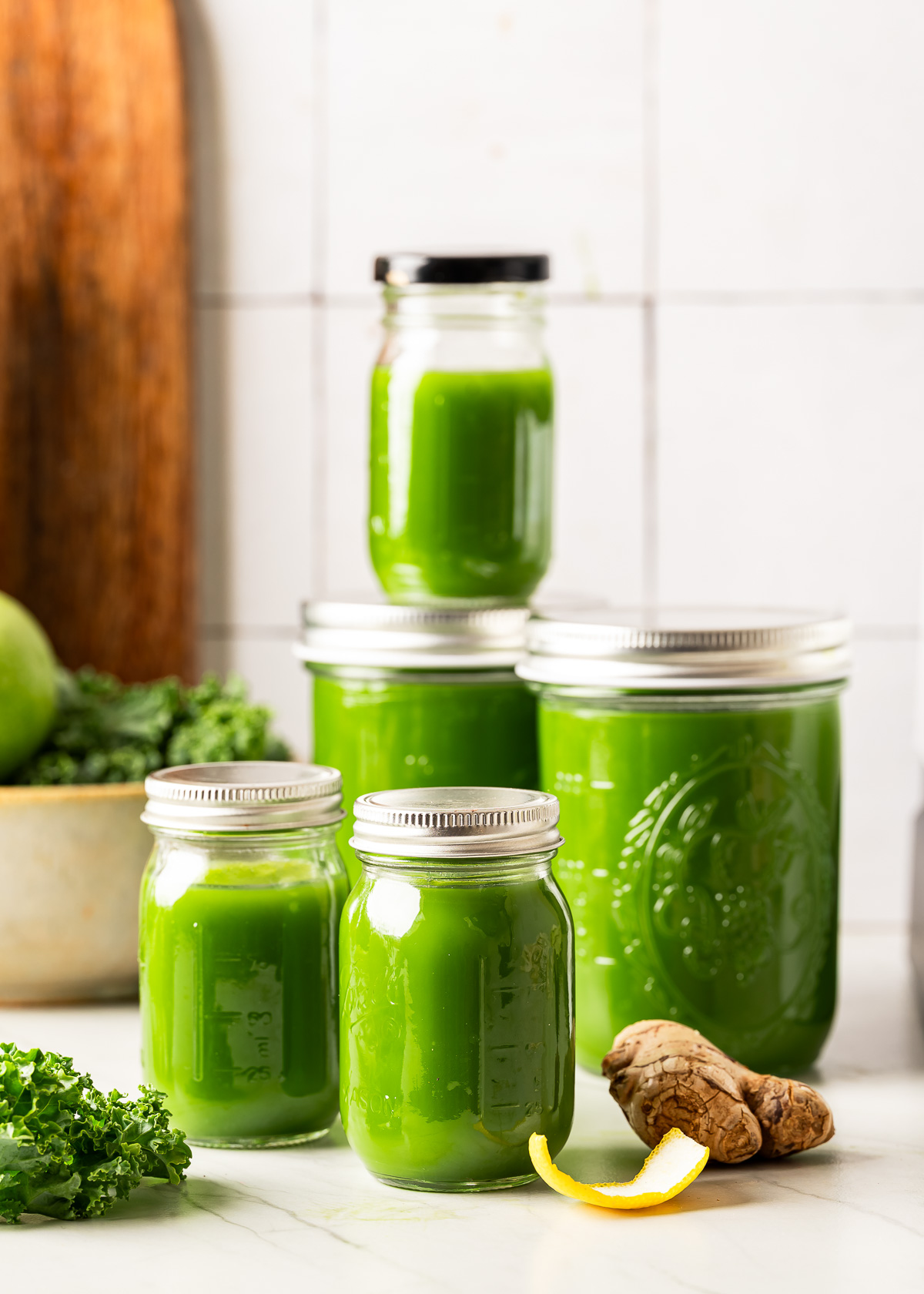
Why This Green Juice Recipe Rawks
Green juice isn’t just a wellness trend, it’s a ritual for energy, clarity, and clean living. Here’s what makes this detox green juice so special:
- Can be made in your blender: No juicer required for this recipe tutorial. Yet if you have one, feel free to use it! If you’re not sure the difference, check out juicer vs blender.
- It’s a nutrient bomb: We’re talking leafy greens like kale and spinach, crisp cucumbers, sweet green apples, zesty lemon, and a spicy kick from fresh ginger. Every sip delivers a blast of vitamins A, C, and K, along with iron, magnesium, and antioxidants.
- Energy without the crash: This juice gives you a clean, sustained energy boost thanks to the smidge of natural sugars and loads of phytonutrients. You’ll feel refreshed, focused, and ready to take on the world.
- Your gut will thank you: With ingredients that promote digestion and reduce inflammation, this juice helps de-bloat and detoxify your system. Ginger soothes the gut, lemon stimulates the liver, and greens give your digestion a gentle push.
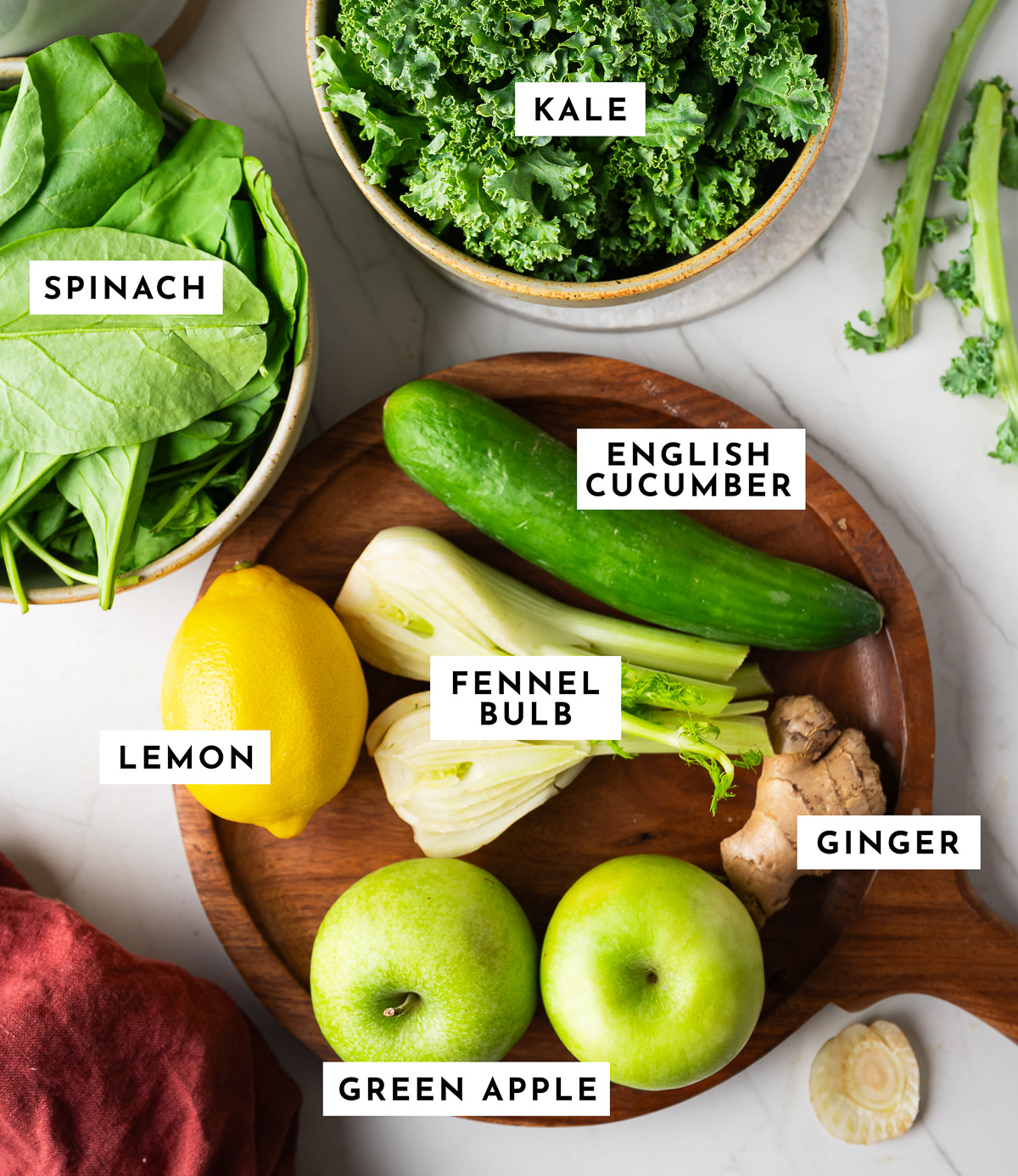
Ingredients You’ll Need
Not gonna lie, most green juices are either too earthy, too sweet, or just straight-up gross. But this one actually hits the mark. It’s quick to throw together, tastes fresh without being weird, and actually makes you want to drink your greens. Here are the following ingredients you need:
- Kale: A bold, slightly bitter green that gives your juice a deep, earthy base. Grab organic kale in bunches or pre-washed bags from the produce section.
- Spinach: Milder and softer than kale, spinach blends smoothly without overpowering other ingredients. Find it fresh or in convenient pre-washed bags near the salad greens.
- Cucumber: Naturally hydrating and refreshing, cucumber adds volume and a crisp finish to the juice. English cucumbers are ideal and often come plastic-wrapped in the produce aisle.
- Green apple: Brings a tart sweetness that balances the earthy greens and boosts vitamin C intake. Green apples are best for juicing and are widely available in the fresh fruit section year-round.
- Fresh ginger: Adds a bold, zesty kick while supporting digestion and reducing inflammation. Look for firm, smooth ginger root in the produce section. A little goes a long way.
- Fennel bulb: Offers a light, sweet flavor with digestive benefits and a refreshing twist. Look for bulbs with bright fronds and firm texture in the produce section near root vegetables. Check out my guide on how to cut fennel perfectly.
- Lemon: A citrusy burst that lifts the flavor and enhances nutrient absorption. Choose firm, bright yellow lemons from the citrus display. Organic is best if blending the peel.
Best Blender for Green Juice
To get the most nutrients out of the produce, you need a high-speed blender that can break down the fiber into small pieces to extract as much liquid and nutrients from the fiber as possible. I recommend a Vitamix Ascent X blender to make green juice and smoothies a daily habit.
How to Make Green Juice Recipe in Blender
One of the best things about this green juice recipe is how incredibly easy it is to make. You don’t need any fancy skills or complicated prep. Making your own green juice at home is not only more cost-effective than store-bought options, but it also ensures you’re getting maximum freshness. Here’s the best green juice recipe by yours truly:
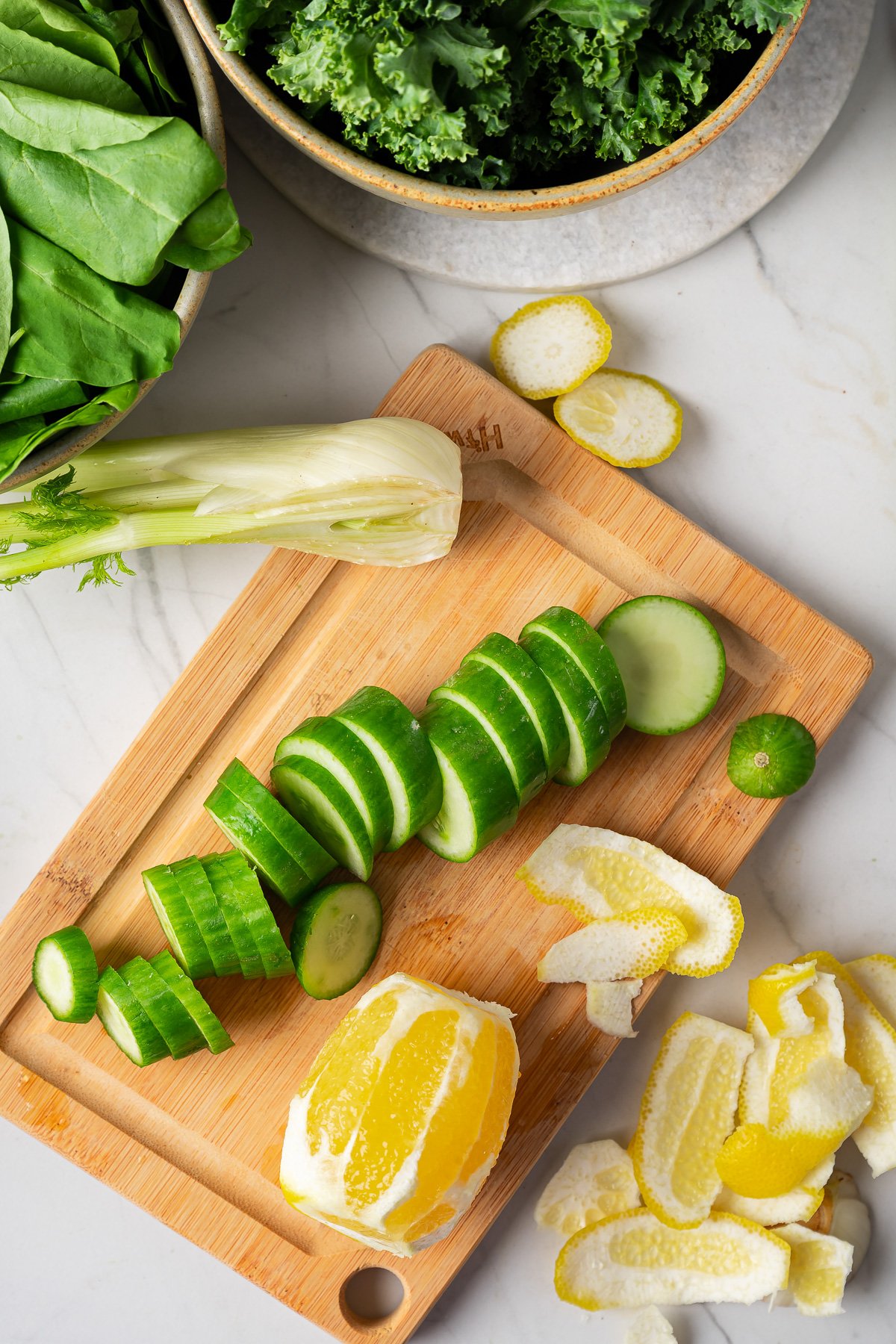
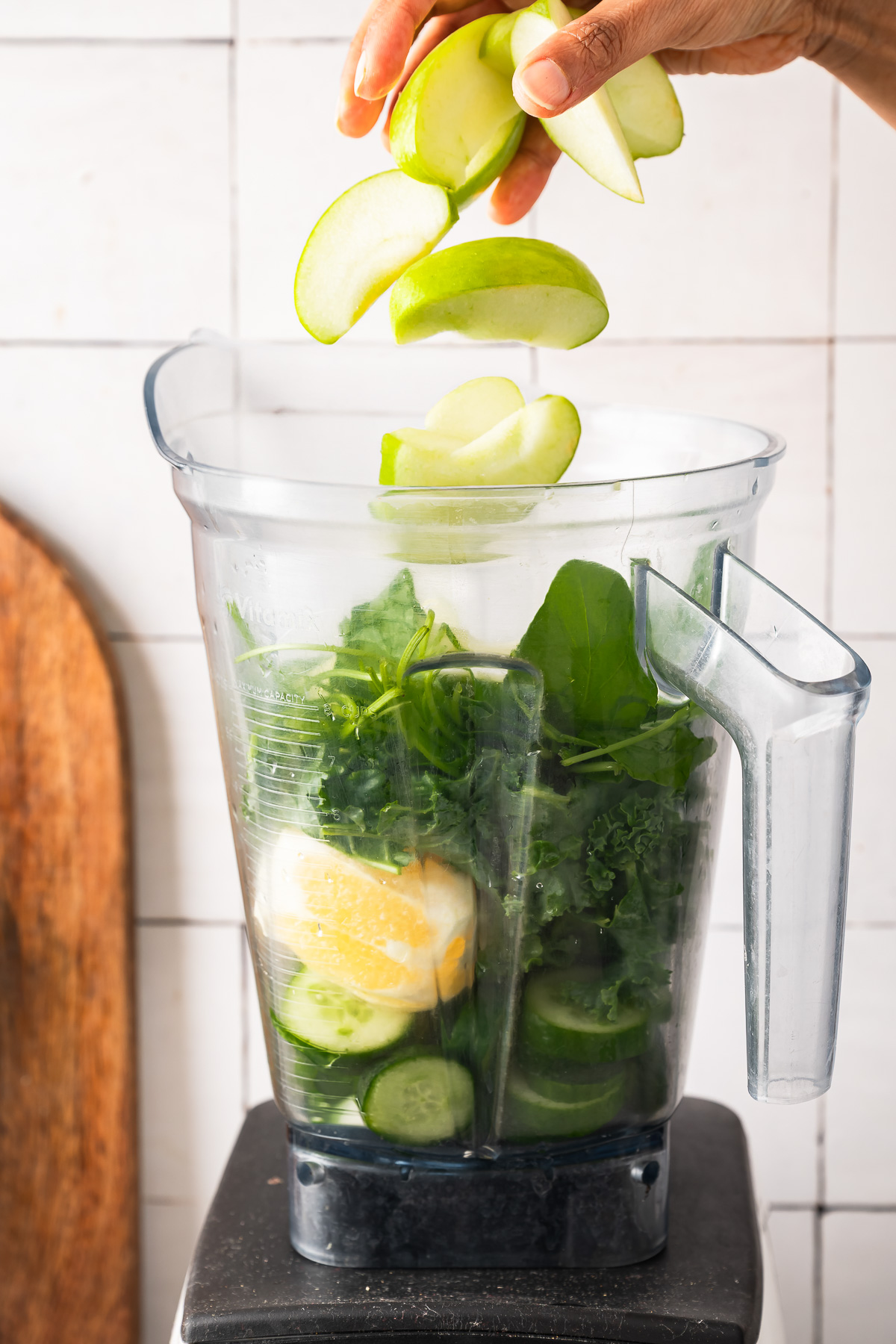
- Rinse all your vegetables and fruits thoroughly. Cut them into chunks on a cutting board for easier blending.
- Add the chopped ingredients to your blender.
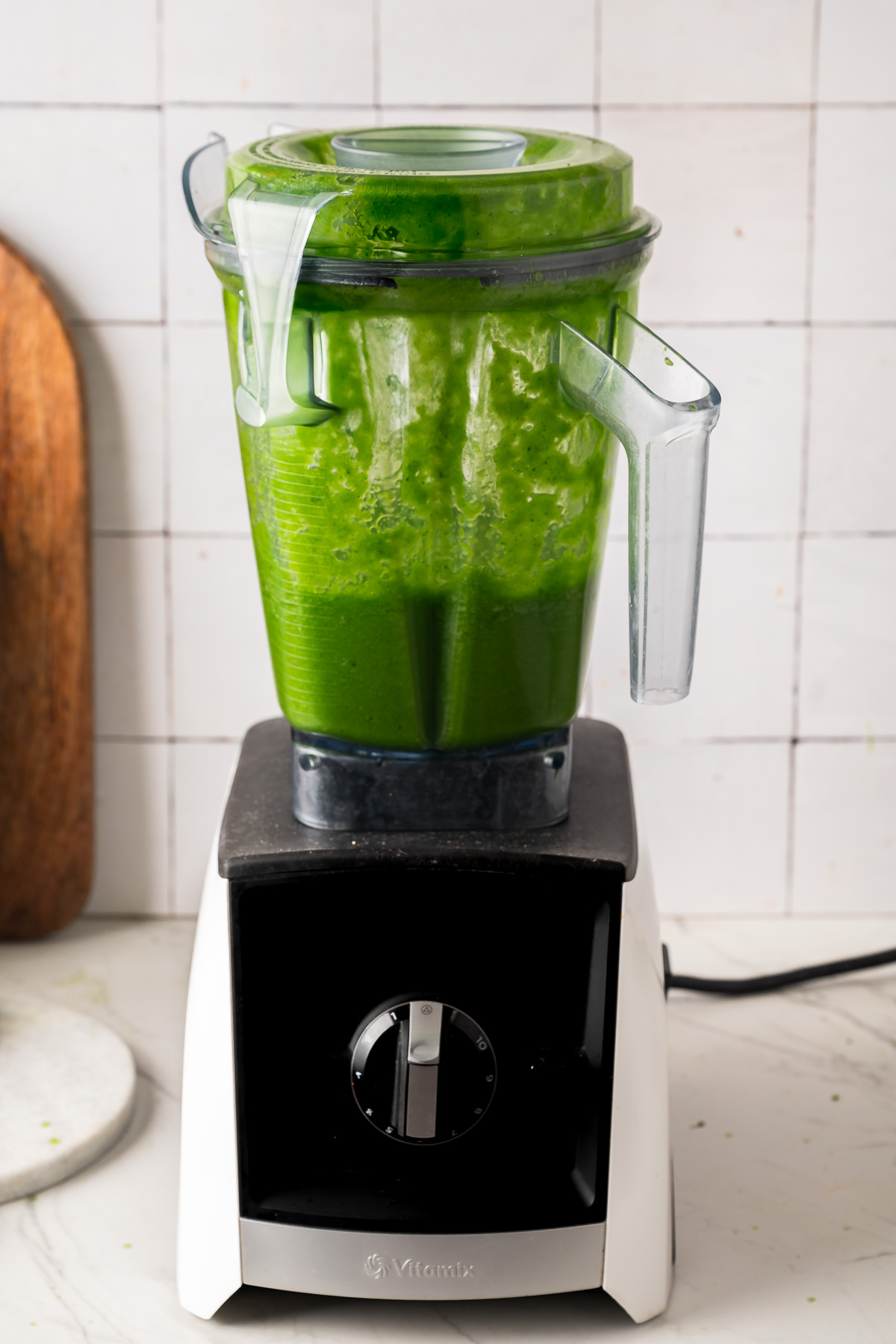
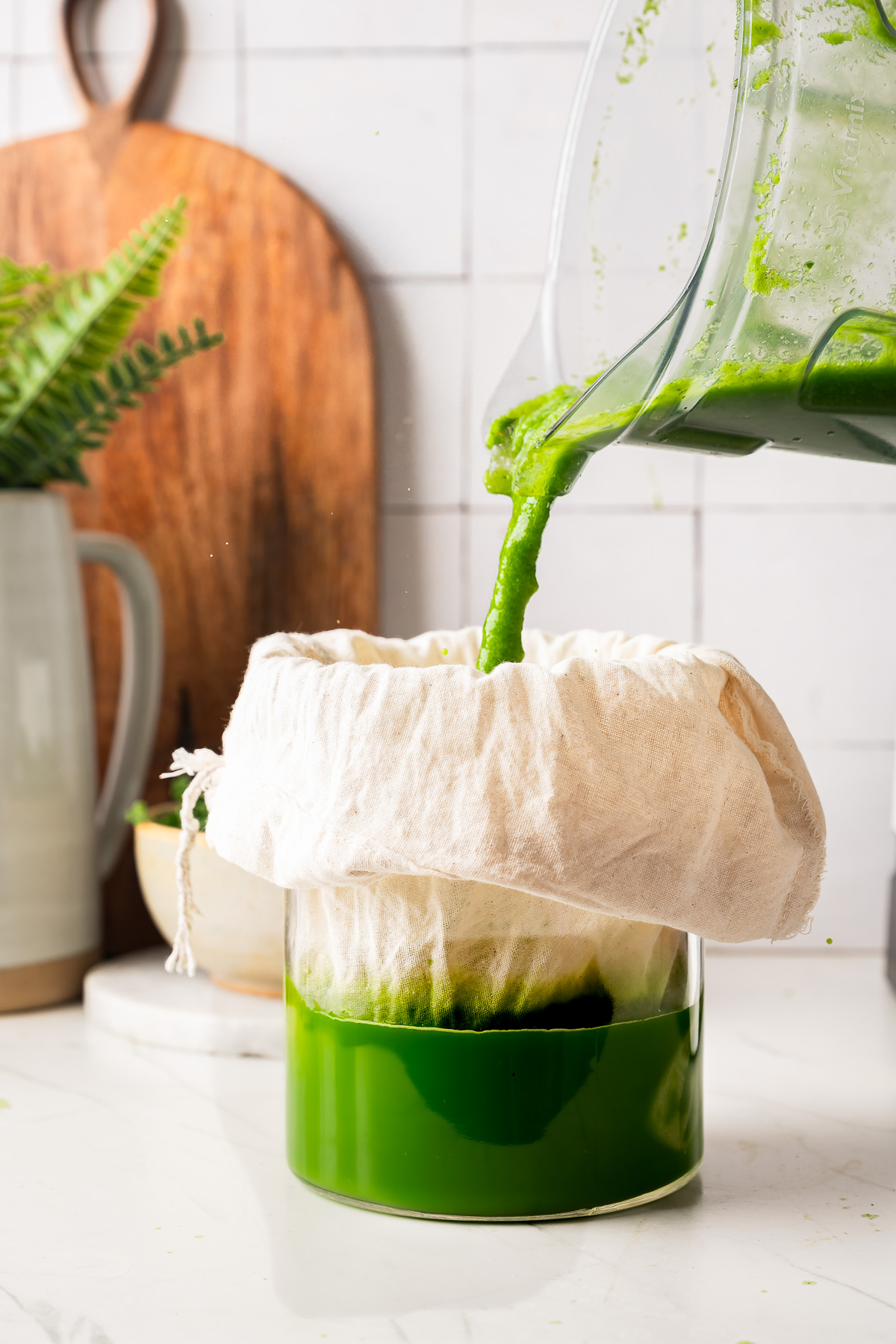
- Blend on high speed until the mixture turns into a smooth, vibrant green texture.
- Place a clean nut milk bag or a thin white cloth over a large jar or bowl. Pour the blended mixture into the cloth.
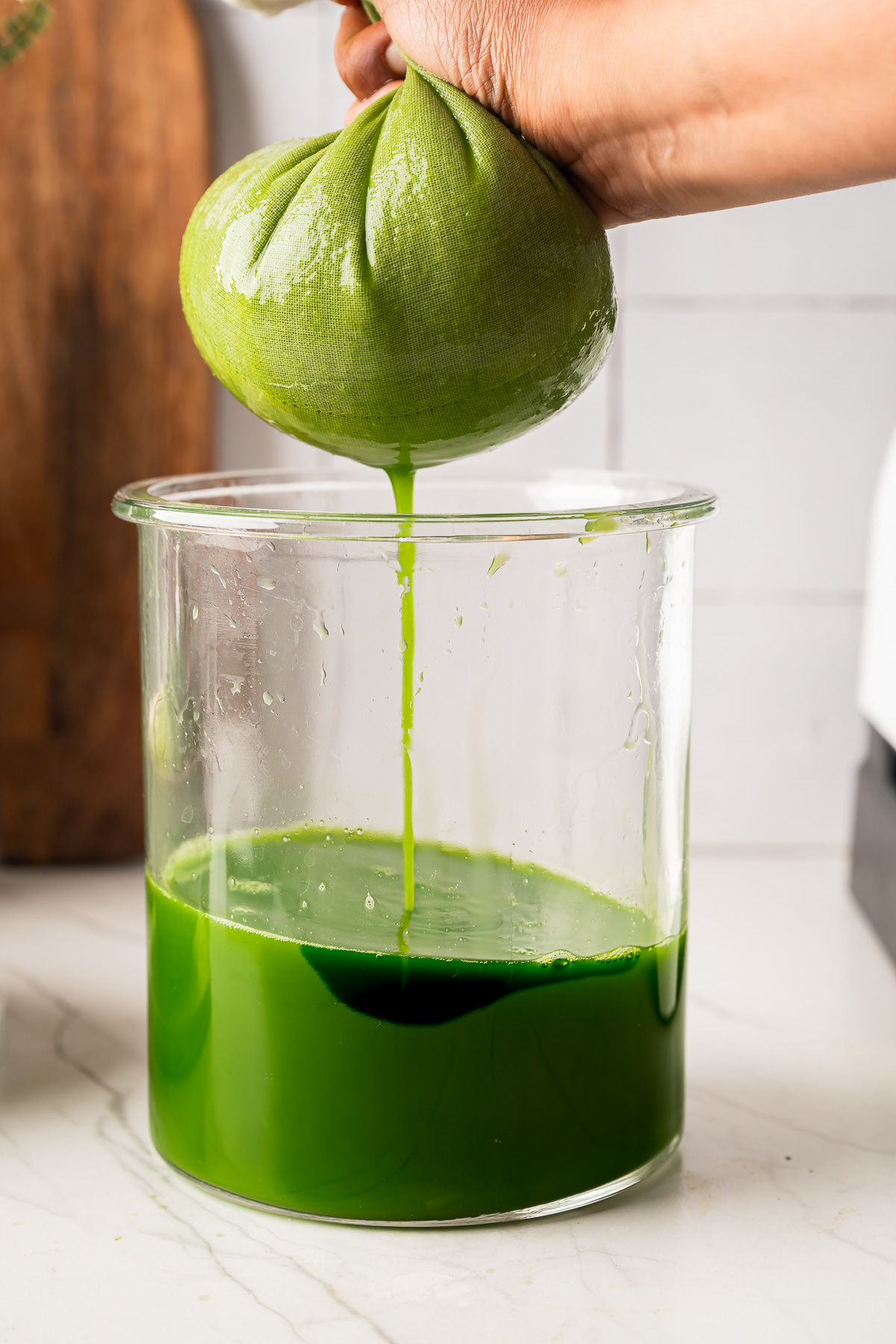
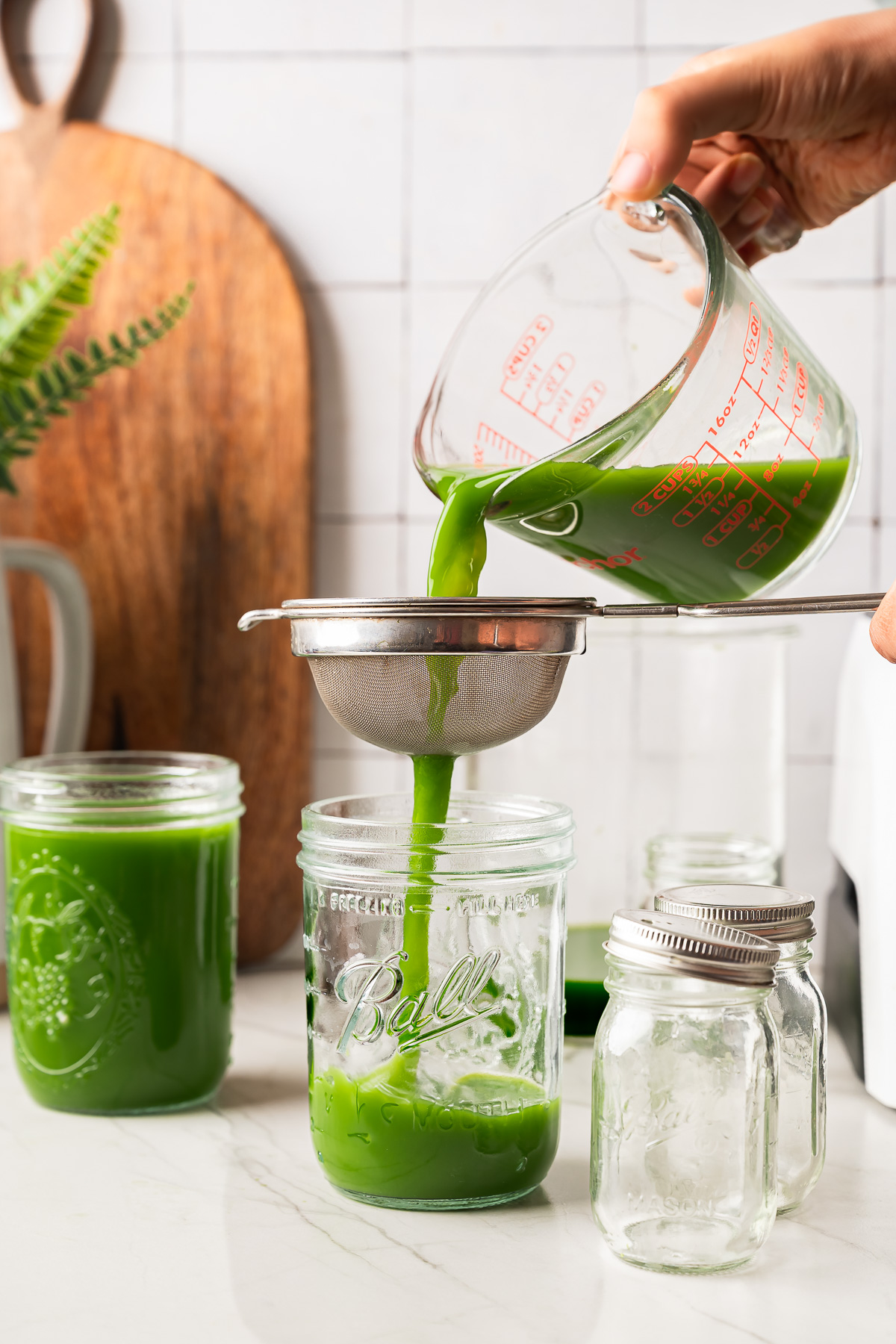
- Squeeze the cloth or bag to separate the juice from the pulp. Take your time to get as much liquid out as possible.
- Pour the juice through a fine mesh sieve (removes any lingering fibers) into a glass or bottle.
Time-Saving Juicing Tips
Chop your fruits and veggies the night before and stash them in a sealed glass container in the fridge. It’s one of those small tweaks that actually makes your green juice routine way less annoying.
Batch juice a few days worth at one time to only clean up once. Store in air-tight containers and drink within 48 hours.
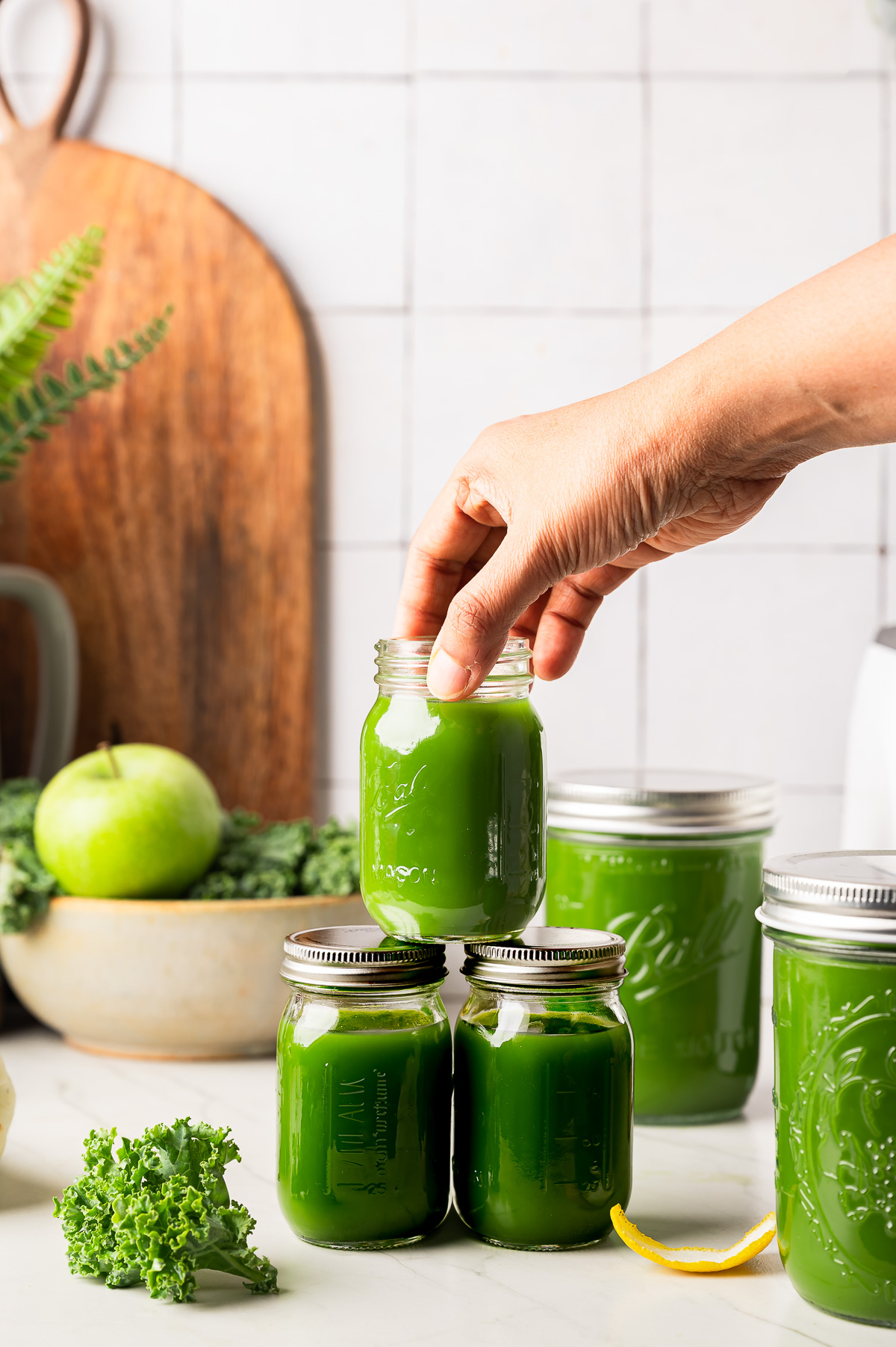
Best Juicer for Green Juice
If you fall in love with this green juice recipe and want to make it a part of your routine, I do recommend purchasing the Nama J2 Cold-Press Juicer (10% off with code: JEN10). It’s super quiet, easy to clean and extracts the most nutrients and juice from the produce.
Green Juice Variations
Want to make your green juice recipe a little sweeter, spicier, or even more nutrient-dense? These easy swaps and additions let you customize your juice to fit your taste, goals, or whatever you’ve got in the fridge, without losing that fresh, energizing vibe.
- Sweeter: Not a fan of green apples? Swap it for a sweeter variety like Fuji or Honeycrisp. Want to skip apples altogether? A handful of pineapple chunks adds natural sweetness. You can also check out my blog on how to cut pineapple. Try replacing lemon with half an orange or a few grapefruit segments. Citrus brightens up the flavor and adds a boost of vitamin C.
- Spicier: Like a little heat? Add a thin slice of fresh jalapeño to your juice. It pairs surprisingly well with pineapple or apple and gives your blend a bold, metabolism-boosting twist.
- Herbaceous: For a cooling, refreshing twist, toss in a few fresh mint leaves. It pairs especially well with cucumber and helps soothe digestion while adding a clean flavor.
- Upgraded: Want to level up your juice? Stir in a teaspoon of spirulina, chlorella, or wheatgrass powder. These superfoods pack extra antioxidants, minerals, and detoxifying benefits.
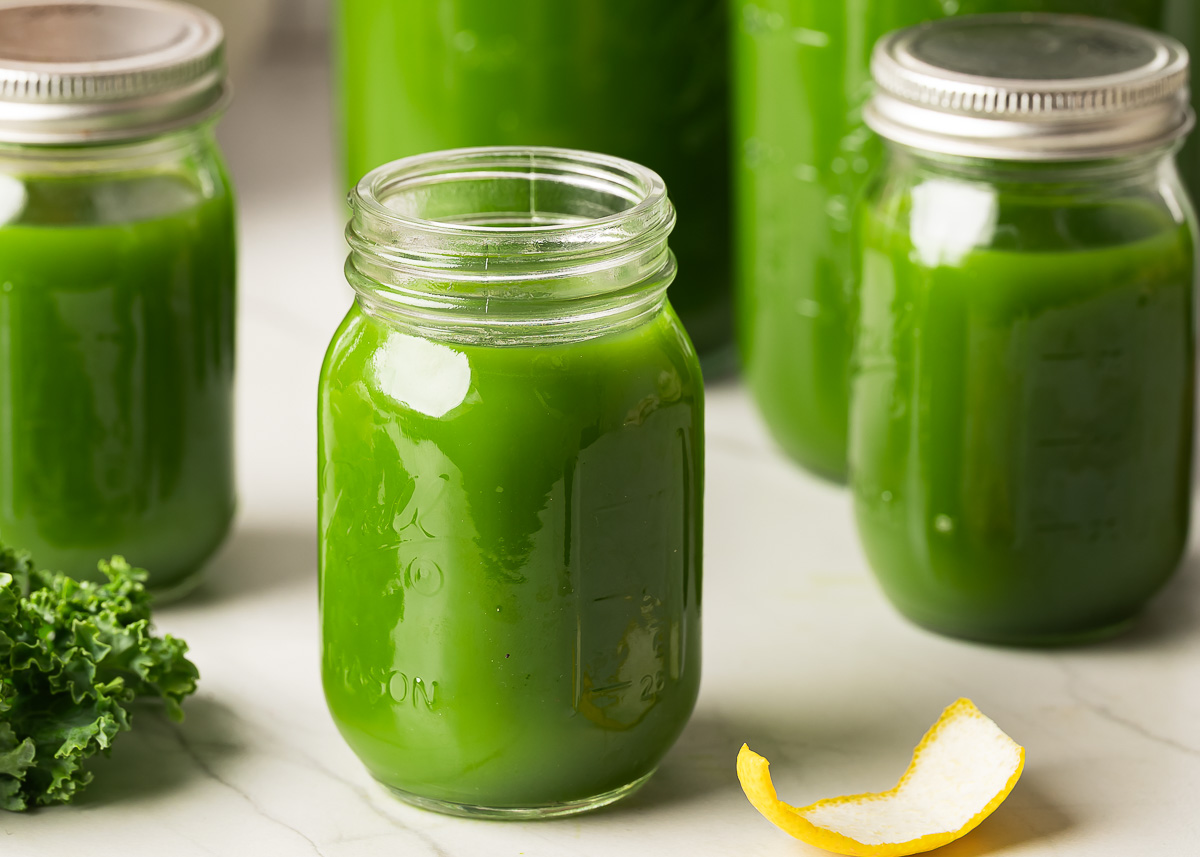
More Detox Recipes You’ll Love
Here are a few of my go-to detox blends that help me reset, recharge, and stay energized, no matter the season or schedule of the day:
- I whip up my Island Green Smoothie when I’m craving something tropical and hydrating. With spinach, banana, pineapple, and coconut water, it’s refreshing, and perfect for post-workout.
- For something bold and anti-inflammatory, I reach for my Tropical Detox Smoothie. It blends mango, ginger, lime, and turmeric into a sunny, digestion-supporting sip.
- When I need a serious nutrient boost, my Spirulina Smoothie comes to the rescue. It’s rich in chlorophyll, minerals, and plant protein, perfect for an energizing reset.
- And if my skin needs some extra love, I go for my Clear Skin Smoothie. It’s loaded with cucumber, lemon, parsley, and green apple to help flush toxins from the body.
If you make this green juice recipe, I’d love to hear how it turned out in the comment box below. Your feedback helps me and all the readers in this community. And if you’re interested in more plant-based recipes (and exclusive content), sign up for my weekly recipe newsletter.
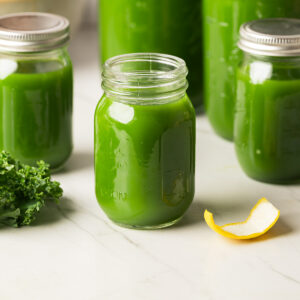
Blender Green Juice Recipe
Ingredients
- 1 English cucumber
- ½ lemon peeled
- ½ bunch kale about 2 cups
- 1 cup spinach
- ½ inch fresh gingerroot peeled
- ½ green apple
- ½ fennel bulb
Instructions
- Layer the veggies in the blender in the order above (putting cucumbers in first).
- Blend everything up on high speed in blender.
- Strain through a nut milk bag.
- Pour through a fine mesh sieve for one final strain before adding to cute little glass bottles to take green juice shots.
Helpful Tools
Notes
- Use organic produce when possible for the cleanest flavor.
- Don’t skip the ginger, it adds warmth and digestion support.
- For a sweeter juice, swap the green apple for Honeycrisp or add a few pineapple chunks.
- Drink within 24 hours for the most nutrients and best taste, yet can be stored up to 48 hours in the fridge in an airtight container.
- Keep leftover pulp to add to smoothies, soups, or compost!
Nutrition
Did you make this recipe?
Leave a review for a chance to win signed copies of my cookbooks!Common Questions
Making green juice is super simple, and you can do it with either a juicer or a blender. Just wash your produce thoroughly, peel and prep ingredients like ginger or apple, and run them through your machine of choice. If using a blender, add a bit of water to help it blend smoothly, then strain the mixture through a nut milk bag or fine mesh sieve. That’s it! Pour, sip, and enjoy.
Yes, there are various green juice benefits! It’s a convenient way to load up on nutrients like vitamins A, C, K, and antioxidants, especially if you struggle to get enough greens. That said, balance is key. Because juicing removes fiber, it’s best to pair your juice with whole fruits, veggies, or a protein-rich snack. Also, be mindful of how much fruit you include to keep sugar levels in check.
Some ingredients just don’t belong in green juice, either because they don’t juice well or because they clash with the flavor. Avoid starchy veggies like carrots or beets if you’re trying to keep sugar and carbs low. Skip bananas and avocados, which are better suited for smoothies since they don’t juice properly. And watch out for too many sweet fruits, while delicious, they can easily turn your juice into a high-sugar drink.
Both methods work, it just depends on your preferences and tools. A juicer separates the pulp from the juice, giving you a thinner, more concentrated liquid that’s quick to absorb and ideal if you’re on a cleanse or want a lighter drink. On the other hand, a blender retains more fiber and results in a thicker juice (technically more like a smoothie). If you strain it after blending, it’s a great alternative if you don’t own a juicer.
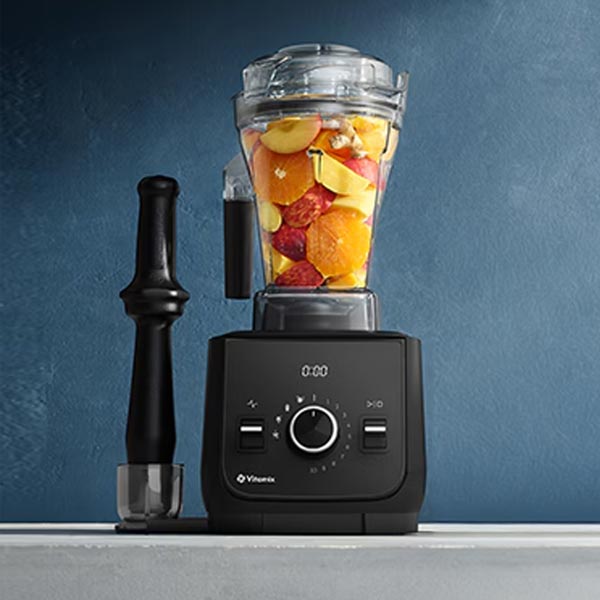
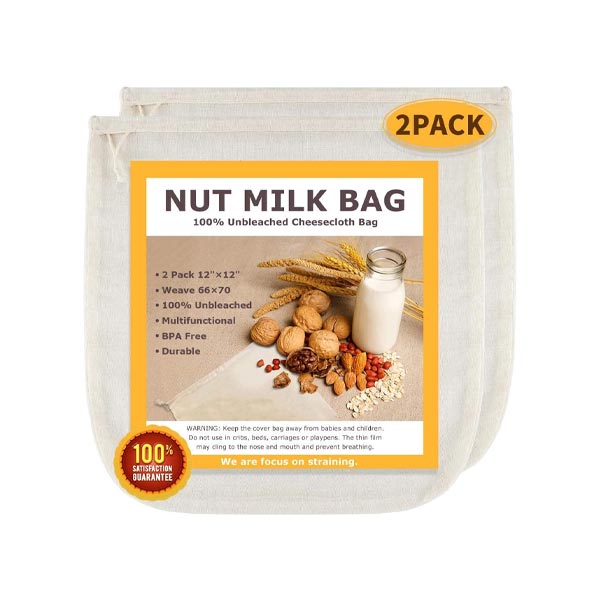
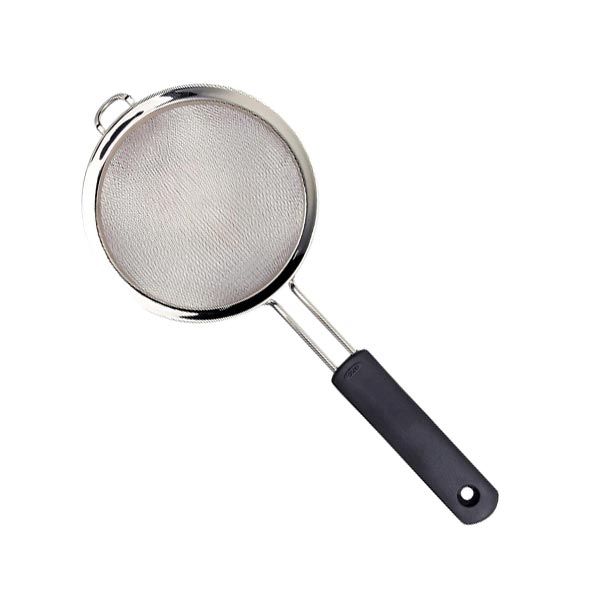

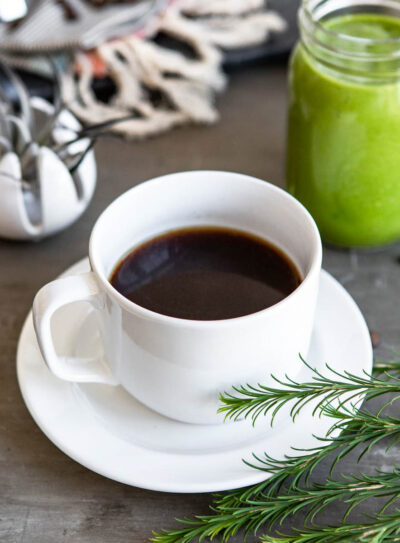
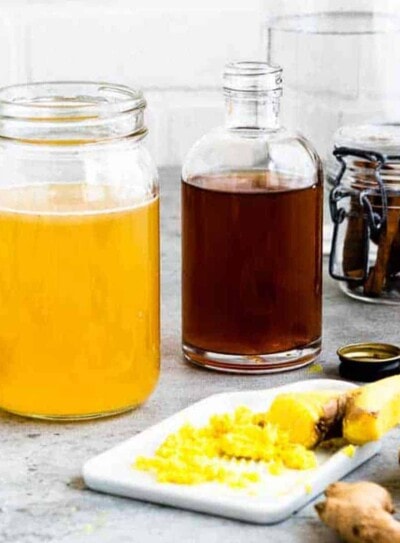
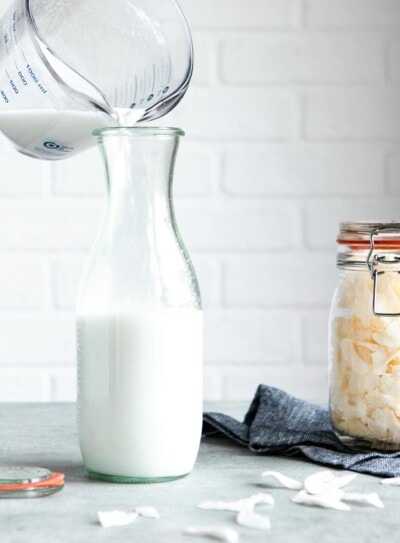
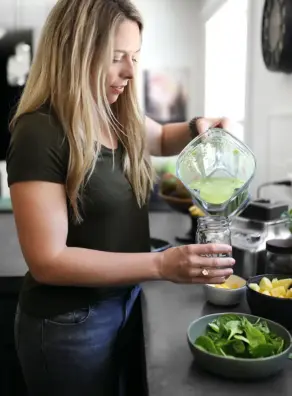
Excellent juice recipe for those of us without a juicer. Great refreshment throughout the day. I didn’t have fennel, and used a whole apple, not half. Next time I will add mint, also. The recipe does not mention water, and I initially thought the cucumber, which goes in the blender first, would provide enough liquid. It doesn’t– added 2 cups of water.
Straining the pulp was easier than I had expected, and the cheesecloth is washed and ready for the next batch.
The water addition is a good tip. Thanks for sharing it!
Very good made some change didn’t have any spinach so I added some mango to sweeten up the kale and used coconut water.i do hot like hot thing so next I we’ll add a little heat
I don’t have the courage to add heat to anything, but I super curious how yours turns out. Let us know.
I have wanted to make juice yet don’t have a juicer— so this was perfect for me. I liked how it wasn’t very sweet—and easy to modify. I ended up putting in all my kale since I didn’t know what to do with the leftovers. I figured I’d rather juice it than toss them. It was so refreshing and I did feel like my body was enjoying the juice.
Great to hear, Tracy. That feeling you’re describing feels like a big thank you to me.